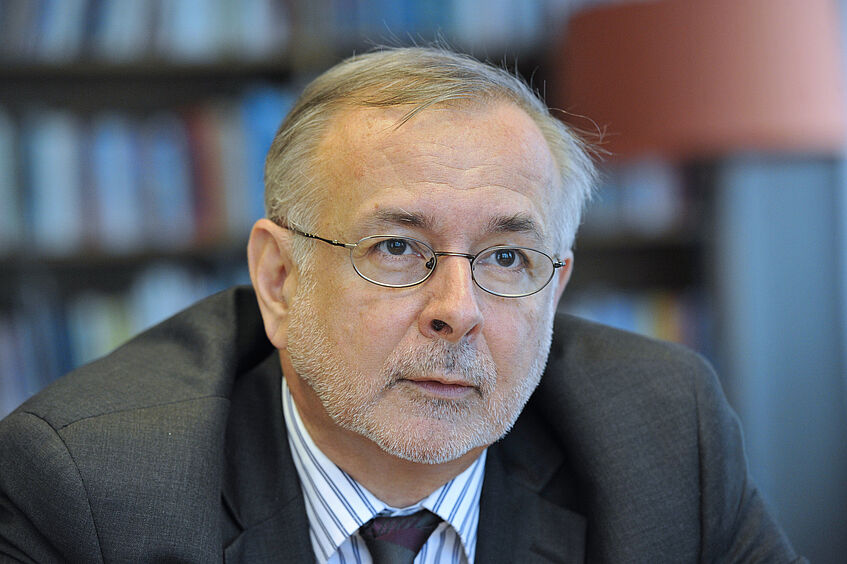
© Matthias Cremer
Univ.-Prof. Mag. DDr. Oliver Rathkolb
Professor and Chair of the Department for Contemporary History at the University of Vienna
Oliver Rathkolb is currently Professor and Chair of the Department for Contemporary History at the University of Vienna. He is author of several books focusing on contemporary history as well as editor and co-editor of several studies concerning interdisciplinary questions of contemporary history and communications/media history and the managing editor of the journal zeitgeschichte (Contemporary History). His prize-winning study “The Paradoxical Republic. Austria 1945-2005” was published by Berghahn Books (New York/Oxford) in 2010. He is a member of the advisory board of the “House of European History” (European Parliament, Brussels) and of the Jewish Museum Vienna. He is the chairman of the advisory board of the “House of Austrian History”.
Homepage: https://zeitgeschichte.univie.ac.at/oliver-rathkolb/
Abstract
The Long Shadow of Authoritarianism in Central Europe in the 20th Century and Today
Over the last thirty years Poland, the Czech Republic and Hungary have been experiencing deep changes in economics, politics and society. Due to the influence of internal opposition and favorable external conditions in 1989 the communist regimes collapsed and a process of transformation towards democracy and market economy started on different levels. Austria – after authoritarian and totalitarian experiences 1933/34-1938-1945 readopted a democratic political system several decades earlier.
Still the present remembrance of the authoritarian past during the inter-war period plays an important role in the political culture of societies and reflects authoritarian or democratic trends in attitudes and behavior of people.
Based on public opinion polls in these countries we can prove the long impact of the past in day to day politics. Societies which are prepared to deconstruct historical myths and the glorifications of the past strong leaders (like Pilsudski, Horthy or Dollfuß) have a more efficient basis for democratic debates and negotiations and resent new strong leaders without real parliamentary influence and a separation of powers with an independent judiciary and free media.
Programme: Panel 1, Wednesday, 5 September 2018, 14:30-16:00
Programme: Discussant Keynote 9, Friday, 7 September 2018, 14:30-15:30